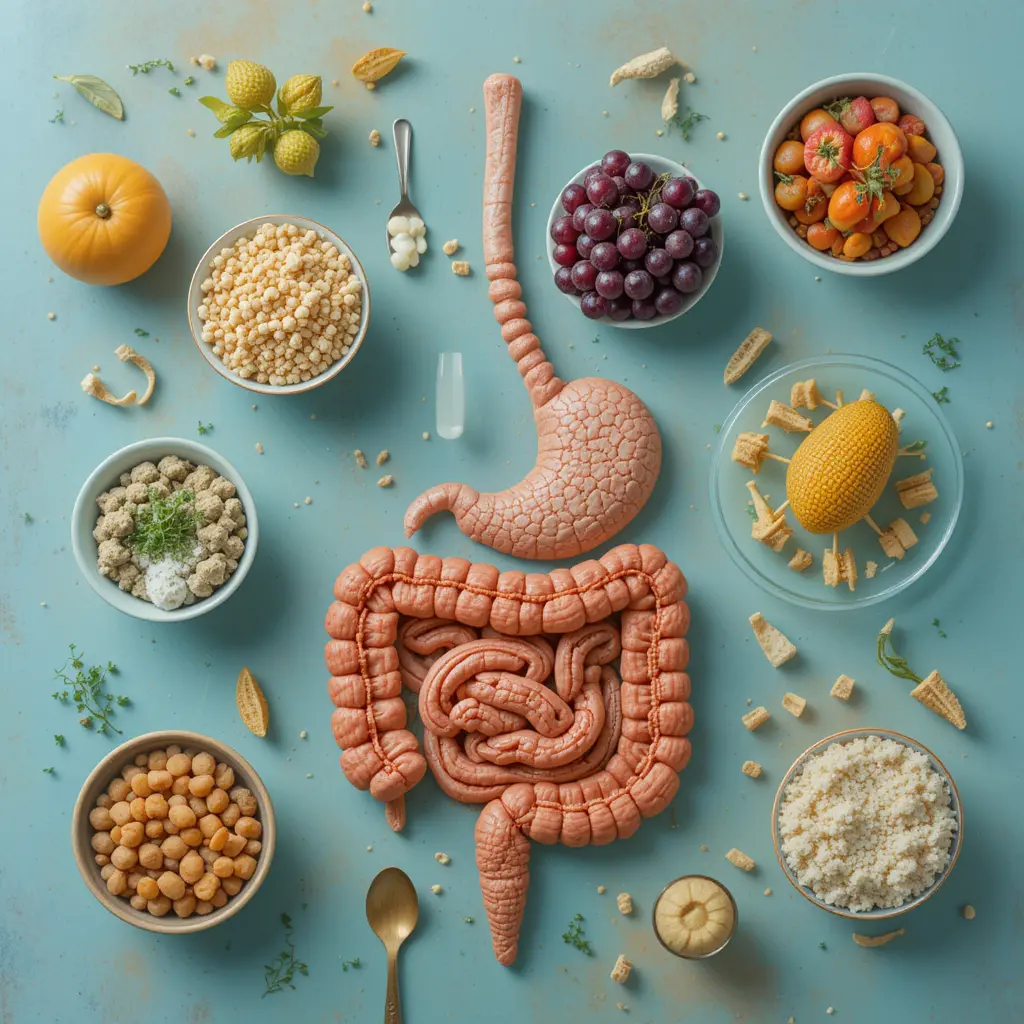Curious about how your diet can transform your gut health? Eating the right foods can significantly improve your digestive system. This article explores simple dietary changes that promote better digestion. Discover how specific nutrients support your gut and learn practical tips for incorporating them into your meals. Embrace these changes to enhance your overall well-being and enjoy a healthier digestive system.
Understanding Digestive Health
Understanding digestive health is like learning the language of your body. It’s fascinating how our gut, often called the “second brain,” communicates with us. As a nutritionist, I find it amazing how small changes in diet can transform our gut health. Imagine your digestive system as a well-oiled machine, where each part plays a crucial role in breaking down food and absorbing nutrients.
The Role of the Gut
The gut is more than just a food processor. It’s a complex system that affects our overall well-being. When we talk about digestive health, we refer to how efficiently our body processes food. A healthy gut can improve mood, boost immunity, and even enhance mental clarity. I remember a client who struggled with fatigue and mood swings. By adjusting her diet, focusing on fiber-rich foods, her energy levels soared, and her mood stabilized. This is a testament to the power of eating for better digestive health.
In my opinion, understanding your gut is like getting to know a friend. You learn what it likes and dislikes. For instance, some people thrive on a diet rich in fruits and vegetables, while others may need more protein. Listening to your body is key. If you experience discomfort after certain meals, it might be your gut signaling a need for change. This personal connection with our digestive system is crucial for maintaining optimal digestive health.
Foods to Include for Optimal Gut Function
Eating for better digestive health can feel like a journey, one where each food choice is a step towards a happier gut. As a nutritionist, I’ve seen firsthand how the right foods can transform not just your digestion, but your overall well-being. Let’s explore some foods that can help you achieve optimal gut function.
Fiber-Rich Foods: The Unsung Heroes
Fiber-rich foods are like the unsung heroes of digestive health. They work quietly, yet effectively, to keep things moving smoothly. Think of them as the gentle push your digestive system needs. Foods like beans, lentils, and whole grains are excellent sources. I remember a client who struggled with bloating until she embraced a diet rich in fiber. Her transformation was remarkable, and she often shared how much lighter she felt. Including these foods in your diet can be a game-changer.
Probiotics: Your Gut’s Best Friend
Probiotics are like the friendly neighbors your gut needs. They help maintain a healthy balance of bacteria, which is crucial for digestion. Yogurt and kefir are popular choices, but don’t overlook fermented foods like sauerkraut and kimchi. I personally love starting my day with a probiotic-rich smoothie. It feels like giving my gut a warm hug. Probiotics can be especially beneficial if you’ve been on antibiotics, as they help restore the natural balance in your gut.
Incorporating these foods into your daily routine is a practical step in learning how to eat for better digestive health. Remember, every small change counts, and your gut will thank you for it.
Foods to Avoid for Better Digestion
When it comes to understanding how to eat for better digestive health, knowing which foods to avoid is just as crucial as knowing what to include. Our digestive system is like a finely tuned engine, and certain foods can throw a wrench in the works. Let’s explore some common culprits that might be causing your gut distress.
Processed Foods: A Digestive Dilemma
Processed foods are often loaded with additives and preservatives that can be harsh on the digestive system. Imagine your stomach as a busy highway. When you consume processed foods, it’s like adding unnecessary traffic, causing congestion and discomfort. I once had a client who loved microwave meals for their convenience. However, after switching to whole foods, they noticed a significant improvement in their digestion. As a nutritionist, I believe that reducing processed foods can lead to a happier gut.
Sugar: The Sweet Saboteur
Sugar, while delightful to the taste buds, can be a sneaky saboteur of digestive health. Excessive sugar can lead to an imbalance in gut bacteria, much like inviting too many guests to a party, resulting in chaos. I recall a friend who struggled with bloating and discomfort. By cutting down on sugary snacks, they found relief and a newfound energy. In my opinion, moderating sugar intake is a simple yet effective step towards better digestion.
Lifestyle Changes to Support Digestive Health
Improving your digestive health can feel like a journey, but small lifestyle changes can make a big difference. As a nutritionist, I’ve seen firsthand how these adjustments can transform lives. Let’s explore some practical steps you can take.
Stay Hydrated
Water is essential for digestion. It helps break down food, allowing your body to absorb nutrients more effectively. Imagine your digestive system as a river; without enough water, it becomes a trickle, slowing everything down. Drinking enough water daily can keep things flowing smoothly. I often tell my clients to carry a water bottle as a reminder to stay hydrated. It’s a simple habit that supports your gut health.
Incorporate Regular Exercise
Exercise is another key player in digestive health. Physical activity helps food move through your digestive system, reducing the risk of constipation. Think of exercise as a gentle nudge for your intestines, encouraging them to keep things moving. Whether it’s a brisk walk or a yoga session, find an activity you enjoy. Personally, I love a morning jog; it sets a positive tone for the day and keeps my digestion on track.
These lifestyle changes are not just about “How to Eat for Better Digestive Health.” They are about creating a balanced routine that supports your overall well-being. Remember, small steps can lead to significant improvements. Embrace these changes, and your gut will thank you.
Conclusion
As we wrap up our journey on How to Eat for Better Digestive Health, it’s clear that our gut plays a crucial role in our overall well-being. Just like a well-tuned engine keeps a car running smoothly, a healthy digestive system ensures our body functions at its best. I’ve seen countless clients transform their health by making simple dietary changes, and it’s always rewarding to witness their progress.
Personal Reflections and Final Thoughts
Reflecting on my experiences as a nutritionist, I recall a client who struggled with bloating and discomfort for years. By incorporating more fiber-rich foods and probiotics into her diet, she noticed a significant improvement. This transformation wasn’t just about physical health; it boosted her confidence and energy levels too. It’s amazing how small changes can lead to big results.
In my opinion, the key to better digestive health lies in understanding your body’s unique needs. While general guidelines are helpful, personalizing your approach can make all the difference. Listen to your body, experiment with different foods, and don’t be afraid to seek professional advice if needed. Remember, the journey to a healthier gut is a marathon, not a sprint.






